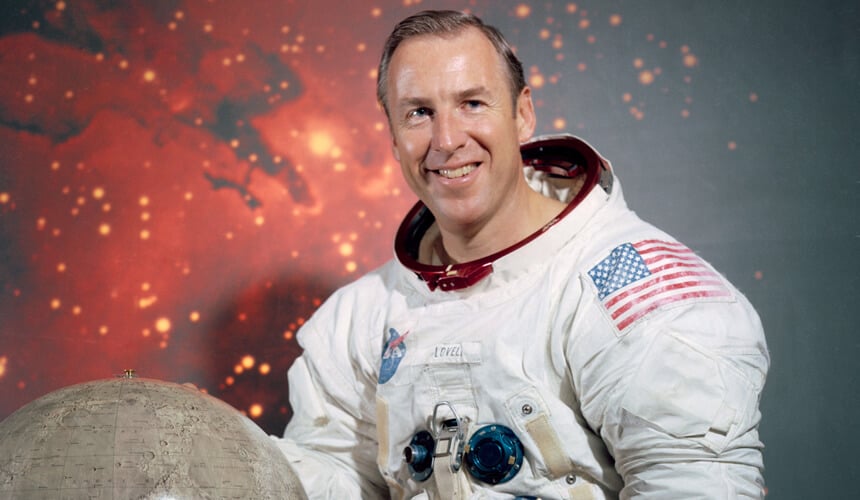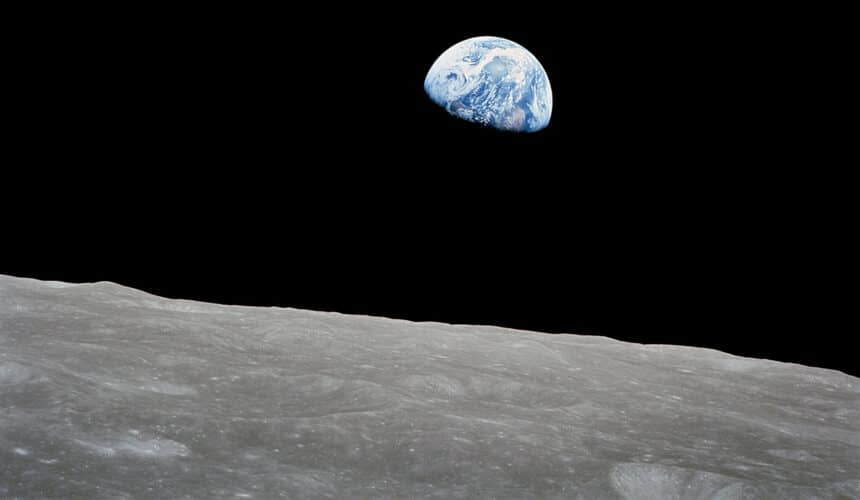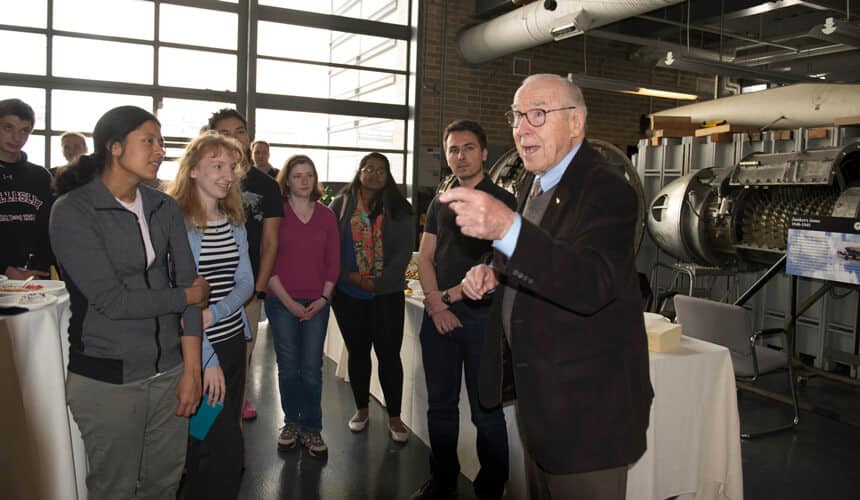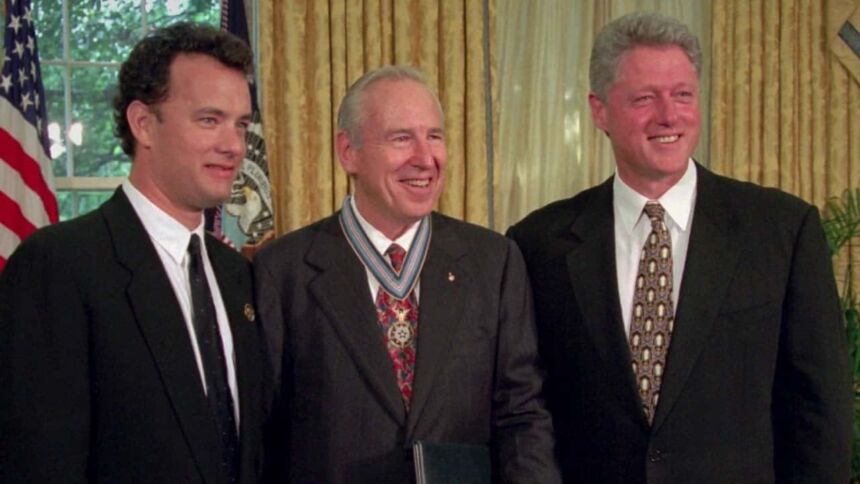Jim Lovell
Apollo 13’s Commander
Though often misquoted, Jim Lovell’s actual words — “Houston, we’ve had a problem.” — have become the quintessential understatement in American lore.
At that moment, Lovell (attended 1946 to 1948), as commander of the 1970 Apollo 13 space mission to the Moon, was being his usual calm and collected self. But he was alerting ground control that he and his fellow astronauts were in deep trouble. A spark had caused an explosion inside an oxygen tank, and the task at hand suddenly switched from a safe Moon landing to surviving a return trip to Earth.
They made it back home four cramped and cold days later, after Lovell manually corrected the ship’s course, but that scary adventure never dampened his love for rockets and space exploration. His career has included logging 715 hours in space, reading from the Book of Genesis on Christmas Eve while orbiting Earth for Apollo 8 (when the spacecraft began its return to Earth on Christmas Day, Lovell announced, “Please be informed, there is a Santa Claus”), receiving the Presidential Medal of Freedom, gracing the covers of Life and Time magazines, and speaking to enthralled audiences across the country.
After Lovell wrote a book about Apollo 13, a 1995 movie with Tom Hanks playing Lovell rekindled the public’s fascination with all that unfolded during that historic flight. While watching the film with a New York Times reporter, Lovell grinned about the creative liberty taken when a critical procedure is completed in 38 seconds. “Actually, we only had 14 seconds to do that maneuver,” he said.
Recalling the tension-filled days, Lovell shrugged off the notion of fear. “We were all test pilots,” he said. “And the only thing we could do was to try to get home. The idea of despair never occurred to us …”
In 2012, President Barack Obama signed a bill that gives Lovell and his fellow former astronauts ownership rights to any artifacts collected during their missions. While those tangible objects have historical value, what Lovell saw from his vantage point thousands of miles above Earth was priceless. He remembers covering our planet with his thumb when he spotted it outside the spaceship window.
“It shows you how insignificant we really all are,” he said. “Everything I ever knew, the very existence of people, all of the problems we have on Earth, was behind my thumb.”
 68° F
68° F


